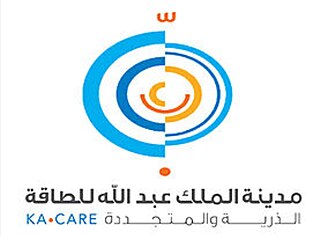
Nuclear proliferation is the spread of nuclear weapons, fissionable material, and weapons-applicable nuclear technology and information to nations not recognized as "Nuclear Weapon States" by the Treaty on the Non-Proliferation of Nuclear Weapons, commonly known as the Non-Proliferation Treaty or NPT. Proliferation has been opposed by many nations with and without nuclear weapons, as governments fear that more countries with nuclear weapons will increase the possibility of nuclear warfare, de-stabilize international or regional relations, or infringe upon the national sovereignty of nation states.

The Nyongbyon Nuclear Scientific Research Center is North Korea's major nuclear facility, operating its first nuclear reactors. It is located in Nyongbyon County in North Pyongan Province, about 100 km north of Pyongyang. The center produced the fissile material for North Korea's six nuclear weapon tests from 2006 to 2017, and since 2009 is developing indigenous light water reactor nuclear power station technology.

Rosatom, also known as Rosatom State Nuclear Energy Corporation, the State Atomic Energy Corporation Rosatom or Rosatom State Corporation, is a Russian state corporation headquartered in Moscow that specializes in nuclear energy, nuclear non-energy goods and high-tech products. Established in 2007, the organization comprises more than 350 enterprises, including scientific research organizations, the nuclear weapons complex, and the world's only nuclear icebreaker fleet.

Nuclear energy policy is a national and international policy concerning some or all aspects of nuclear energy and the nuclear fuel cycle, such as uranium mining, ore concentration, conversion, enrichment for nuclear fuel, generating electricity by nuclear power, storing and reprocessing spent nuclear fuel, and disposal of radioactive waste. Nuclear energy policies often include the regulation of energy use and standards relating to the nuclear fuel cycle. Other measures include efficiency standards, safety regulations, emission standards, fiscal policies, and legislation on energy trading, transport of nuclear waste and contaminated materials, and their storage. Governments might subsidize nuclear energy and arrange international treaties and trade agreements about the import and export of nuclear technology, electricity, nuclear waste, and uranium.

The China National Nuclear Corporation is a state-owned enterprise founded in 1955 in Beijing. CNNC's president and vice-president are appointed by the Premier of the People's Republic of China. CNNC oversees all aspects of China's civilian and military nuclear programs. According to its own mission statement, it "is a main part of the national nuclear technology industry and a leading element of national strategic nuclear forces and nuclear energy development." CNNC is a nationwide industrial conglomerate integrating science, technology, industry, and international trade.
The Chashma Nuclear Power Plant, is a large commercial nuclear power plant located in the vicinities of Chashma colony and Kundian in Punjab in Pakistan.
As of 2022, nuclear power is provided by six commercial nuclear power plants in Pakistan. Pakistan is the first Muslim majority country in the world to construct and operate civil nuclear power plants. The Pakistan Atomic Energy Commission (PAEC), the scientific and nuclear governmental agency, is solely responsible for operating these power plants. As of 2018, the electricity generated by commercial nuclear power plants constitutes roughly 7.5% of electricity generated in Pakistan, Pakistan is not a party to the Nuclear Non-Proliferation Treaty but is a member of the International Atomic Energy Agency. Pakistan plans on constructing 32 nuclear power plants by 2050 and envisions 40,000 MW of nuclear power generation.

Saudi Arabia is not known to have a nuclear weapons program. From an official and public standpoint, Saudi Arabia has been an opponent of nuclear weapons in the Middle East, having signed the Treaty on the Non-Proliferation of Nuclear Weapons, and is a member of the coalition of countries demanding a Nuclear-weapon-free zone in the Middle East. Studies of nuclear proliferation have not identified Saudi Arabia as a country of concern. Nuclear technology company IP3 International was formed in June 2016 to transfer nuclear technology from the United States to Saudi Arabia.

China is one of the world's largest producers of nuclear power. The country ranks third in the world both in total nuclear power capacity installed and electricity generated, accounting for around one tenth of global nuclear power generated. Nuclear power contributed 4.9% of the total Chinese electricity production in 2019, with 348.1 TWh. As of September 2022, China operates a total of 53 nuclear reactors, with a total capacity of 55.6 gigawatt (GW). This was short of the previous target of 58GW of installed capacity by 2020. More than 20 reactors are under construction with a total capacity of 24.2 GW.
Nuclear power is the fifth-largest source of electricity in India after coal, gas, hydroelectricity and wind power. As of November 2020, India has 22 nuclear reactors in operation in 8 nuclear power plants, with a total installed capacity of 7,380 MW. Nuclear power produced a total of 43 TWh in 2020-21, contributing 3.11% of total power generation in India. 10 more reactors are under construction with a combined generation capacity of 8,000 MW.
Energy in Kazakhstan describes energy and electricity production, consumption and import in Kazakhstan and the politics of Kazakhstan related to energy.

Energy in Saudi Arabia involves petroleum and natural gas production, consumption, and exports, and electricity production. Saudi Arabia is the world's leading oil producer and exporter. Saudi Arabia's economy is petroleum-based; oil accounts for 90% of the country's exports and nearly 75% of government revenue. The oil industry produces about 45% of Saudi Arabia's gross domestic product, against 40% from the private sector. Saudi Arabia has per capita GDP of $20,700. The economy is still very dependent on oil despite diversification, in particular in the petrochemical sector.
President Adly Mansour announced on 7 November 2013 that Egypt was restarting its nuclear power program in El Dabaa; a deal was reached with the residents in which it was agreed that a residential area will also be built. The Egyptian minister of electricity, Ahmed Emam, has called the project "necessary" because of a small amount of renewable energy sources and not enough fuel.
National nuclear energy policy is a national policy concerning some or all aspects of nuclear energy, such as mining for nuclear fuel, extraction and processing of nuclear fuel from the ore, generating electricity by nuclear power, enriching and storing spent nuclear fuel and nuclear fuel reprocessing. Nuclear energy policies often include the regulation of energy use and standards relating to the nuclear fuel cycle.
In December 2016, the Jordan Atomic Energy Commission (JAEC), in cooperation with a consortium headed by the Korean Atomic Energy Research Institute, inaugurated the 5 MW Jordan Research and Training Reactor. The facility is the first nuclear reactor in the country. It will provide radioactive isotopes for medical usage in Jordan, and will provide training for students at the University to produce a skilled workforce for the country's planned commercial nuclear reactors.
Energy in Libya describes energy and electricity production, consumption, and import in Libya. The petroleum industry is the primary engine of the Libyan economy.

The King Abdullah City for Atomic and Renewable Energy (K.A.CARE) is an scientific, research and governmental entity in the Kingdom of Saudi Arabia that is legally independent chaired by the Minister of Energy, which deals with the issues of nuclear and renewable energy in Saudi Arabia and contributes to the sustainable development of the energy sector in the Kingdom and founded in 2010 headquartered in Riyadh city.

Saudi Arabia has not officially maintained and possessed weapons of mass destruction (WMD). In 1972 Saudi Arabia signed and approved the convention on the prohibition of the development, production and stockpiling of biological (bacteriological) and toxin weapons. Nevertheless, Saudi Arabia has made steps towards a nuclear program and according to some observations, they can be used to develop nuclear weapons. According to some reports, Riyadh has an alleged deal with Pakistan regarding nuclear weapons projects.
The CNP Generation II nuclear reactors were a series of nuclear reactors developed by China National Nuclear Corporation (CNNC), and are predecessors of the more current Hualong One design.
The utilization of nuclear power in Kazakhstan began with Kazakhstan's first nuclear power plant, the BN-350 fast-neutron reactor in Aktau, operating from 1973 to 1999. Since then, it has only operated four smaller research reactors and did not have nuclear electricity production capabilities. Kazakhstan is the number one country in the world for uranium production volumes, which is used for nuclear fuel. Current plans, reaching back to 1997, foresee the construction of two new nuclear power plants near the towns of Ulken and Kurchatov.








